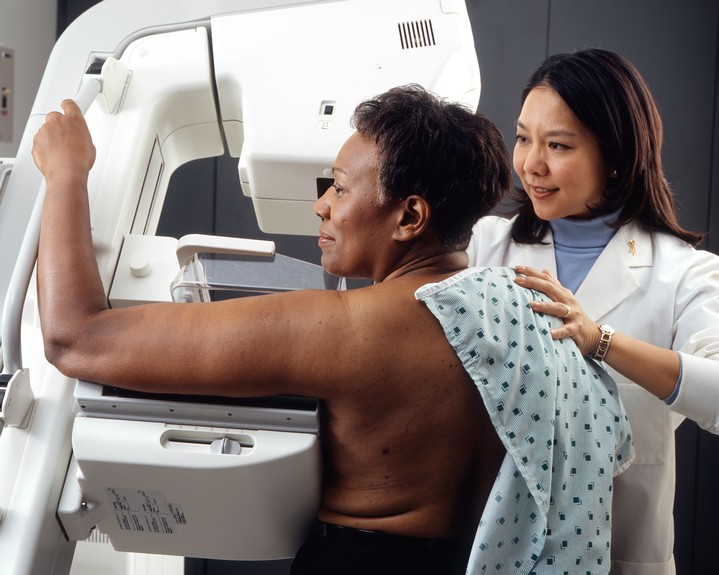Rogel Cancer Center joins leading cancer organizations to warn cancer doesn’t stop for COVID-19 and neither should you
Media contact: Nicole Fawcett, 734-764-2220 | Patients may contact Cancer AnswerLine™, 800-865-1125
U-M part of nationwide effort to resume appropriate cancer screening and treatment to prevent excess deaths.
ANN ARBOR, Michigan – The University of Michigan Rogel Cancer Center is teaming up with the National Comprehensive Cancer Network® (NCCN®), the American Cancer Society (ACS) and other leading cancer organizations across the country to endorse resuming cancer screening and treatment during the ongoing COVID-19 pandemic.

The coalition of 76 organizations has released an open letter reminding the public that cancer still poses a major threat to people’s health, but acting as soon as is safely possible can lead to much better outcomes in the future. The letter examines distressing trends showing a significant drop-off in recommended cancer screening and treatment compared to prior years. This concerning side-effect of the pandemic could lead to a staggering number of preventable cancer deaths over the next 10 years and beyond. Oncology experts agree that people should not delay any necessary prevention or care.
“Cancer did not get put on pause during the pandemic. We’re urging patients to make and keep appointments for their routine cancer screenings. Regular mammograms, colonoscopies, Pap tests and prostate cancer tests are our best methods for detecting cancer before it starts or at its earliest stages, when it’s easiest to treat,” says Eric Fearon, M.D., Ph.D., director of the Rogel Cancer Center. “We are taking many precautions to keep patients safe during a visit so that the risk skipping a test is greater than the risk from coming to our clinics.”
“When cancer is caught earlier, it is typically easier to treat because there are more options available,” said Robert W. Carlson, M.D., CEO of NCCN. “When the pandemic first hit the United States, a short delay in care was an appropriate choice for many cancer types. However, the balance of risk has shifted significantly. We now have two impressive vaccines that are being distributed around the world. We also know much more about how to treat and prevent COVID-19. Far too many cancers are being left to grow unchecked. Postponing cancer care will add tragedy on top of tragedy.”
“It is of the utmost importance that critical cancer screenings resume as soon as safely possible,” said William G. Cance, M.D., chief medical and scientific officer of the American Cancer Society. “Over the past decade we have seen overall cancer mortality rates drop dramatically. This decline is in large part due to screening’s ability to catch cancers before they spread—when the chances of good outcomes are most likely. We have come too far in our fight against cancer to allow long breaks in vital screening to slow down our progress in saving lives.”
Hospitals and medical systems across the country have already begun vaccinating health care providers among other measures to ensure a safe environment for people receiving cancer screening and treatment. The confirmed use of evidence-based precautions against COVID-19 should provide reassurance against fears of infection during necessary medical care.
The letter points out that researchers around the world have made tremendous strides in controlling cancer in recent years. Leading oncology experts are now asking everyone, in coordination with their health care provider, to resume preventive and prescribed care and contact their doctor right away about any new symptoms or concerns.
Read about patients who got a routine cancer screening during the pandemic.
Visit NCCN.org/resume-screening to read the entire letter. For general guidance and information about cancer, visit NCCN.org or Cancer.org.
About the University of Michigan Rogel Cancer Center
The Rogel Cancer Center is committed to improving the health and well-being of people who have – or are at risk of getting – cancer. As a National Cancer Institute-designated comprehensive cancer center, our more than 500 members work to prevent cancer, improve outcomes for those diagnosed, and improve quality of life for cancer patients and survivors. Among 24 areas of specialty, our multidisciplinary cancer clinics offer one-stop access to teams of specialists who develop personalized treatment plans for each patient. Learn more at rogelcancercenter.org or call the Cancer AnswerLine at 800-865-1125.
About the National Comprehensive Cancer Network
The National Comprehensive Cancer Network® (NCCN®) is a not-for-profit alliance of leading cancer centers devoted to patient care, research, and education. NCCN is dedicated to improving and facilitating quality, effective, efficient, and accessible cancer care so patients can live better lives. Visit NCCN.org for more information on the NCCN Clinical Practice Guidelines in Oncology (NCCN Guidelines®) and other initiatives. Follow NCCN on Facebook @NCCNorg, Instagram @NCCNorg and Twitter @NCCN.
About the American Cancer Society
The American Cancer Society is a global grassroots force of 1.5 million volunteers dedicated to saving lives, celebrating lives, and leading the fight for a world without cancer. From breakthrough research, to free lodging near treatment, a 24/7/365 live helpline, free rides to treatment, and convening powerful activists to create awareness and impact, the Society is the only organization attacking cancer from every angle. For more information go to www.cancer.org.
